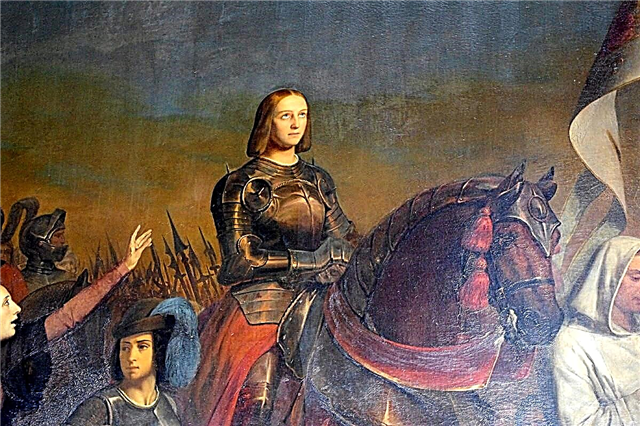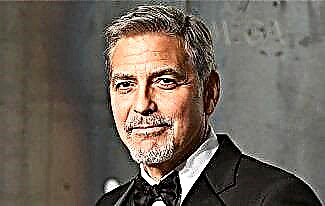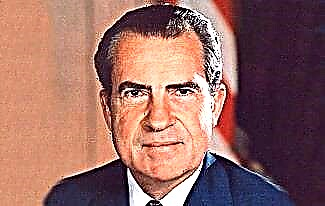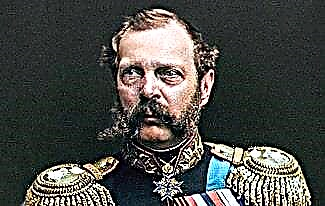Dmitry Sergeevich Likhachev - Soviet and Russian philologist, culturologist, art critic, Doctor of Philology, Professor. Chairman of the Board of the Russian (Soviet until 1991) Cultural Foundation (1986-1993). Author of fundamental works on the history of Russian literature.
There are many interesting facts in the biography of Dmitry Likhachev, which we will tell about in this article.
So, before you is a short biography of Dmitry Likhachev.

Biography of Dmitry Likhachev
Dmitry Likhachev was born on November 15 (28), 1906 in St. Petersburg. He grew up in an intelligent family with a modest income.
The philologist's father, Sergei Mikhailovich, worked as an electrical engineer, and his mother, Vera Semyonovna, was a housewife.
Childhood and youth
As a teenager, Dmitry firmly decided that he wanted to connect his life with the Russian language and literature.
For this reason, Likhachev entered the Leningrad University at the philological department of the Faculty of Social Sciences.
During his studies at the university, the student was one of the members of an underground circle, where they deeply studied ancient Slavic philology. In 1928, he was arrested on charges of anti-Soviet activities.
The Soviet court ruled to exile Dmitry Likhachev to the infamous Solovetsky Islands, located in the waters of the White Sea. Later he was sent to the construction site of the Belomorkanal, and in 1932 he was released ahead of schedule "for success in work."

It is worth noting that the time spent in the camps did not break Likhachev. After going through all the trials, he returned to his native Leningrad to complete higher education.
Moreover, Dmitry Likhachev achieved zero convictions, after which he plunged headlong into science. An interesting fact is that the years of his biography spent in prison helped him in philological studies.
Science and creativity
At the beginning of the Great Patriotic War (1941-1945) Dmitry Likhachev ended up in besieged Leningrad. And although he had to fight for his existence every day, he did not stop studying ancient Russian documents.
In 1942, the philologist was evacuated to Kazan, where he was still engaged in scientific activities.
Soon Russian scientists drew attention to the work of the young Likhachev. They recognized that his work deserves special attention.
Later, the world community learned about Dmitry Sergeevich's research. They began to call him a profound expert in various fields of philology and Russian culture, from Slavic literature to modern events.
Obviously, before him, no one had yet managed to study and describe so scrupulously the 1000-year-old content of spirituality, along with Slavic and Russian culture, on such a large scale.
The academician explored their unbreakable connection with the world's intellectual and cultural peaks. In addition, for a long time he accumulated and distributed scientific forces in the most important research areas.
Dmitry Likhachev made a significant contribution to the development of educational activities in the USSR. For more than a decade, he strove to convey his own ideas and thoughts to the public.

During the reign of Mikhail Gorbachev, a generation of people grew up on his programs broadcast on television, which today belongs to the representatives of the intellectual stratum of society.
These TV shows were free communication between the presenter and the audience.
Until the end of his days, Likhachev did not stop engaging in editorial and publishing activities, independently correcting the materials of young scientists.
It is curious that the philologist has always tried to answer the countless letters that came to him from different parts of his vast homeland. It is worth noting that he had a negative attitude towards any manifestation of nationalism. He owns the following phrase:
“There is a deep difference between patriotism and nationalism. In the first - love for your country, in the second - hatred for everyone else. "
Likhachev was distinguished from many of his colleagues by his directness and desire to get to the bottom of the truth. For example, he criticized any conspiracy doctrines in understanding historical events and did not consider it correct to recognize Russia as a messianic role in human history.
Dmitry Likhachev has always remained faithful to his native Petersburg. He was repeatedly offered to move to Moscow, but he always turned down any such offers.
Perhaps this was due to the Pushkin House, which housed the Institute of Russian Literature, where Likhachev worked for over 60 years.
Over the years of his biography, the academician has published about 500 scientific and 600 journalistic works. The circle of his scientific interests began from the study of icon painting and ended with the study of the prison life of prisoners.
Personal life
Dmitry Likhachev was an exemplary family man who lived his whole life with one wife named Zinaida Alexandrovna. The philologist met his future wife in 1932, when he worked as a proofreader at the Academy of Sciences.

In this marriage, the couple had 2 twins - Lyudmila and Vera. According to Likhachev himself, mutual understanding and love have always reigned between him and his wife.
The scientist was never a member of the Communist Party, and also refused to sign letters against prominent cultural figures of the USSR. At the same time, he was not a dissident, but rather tried to find a compromise with the Soviet regime.
Death
In the fall of 1999, Dmitry Likhachev was admitted to the Botkin hospital, where he soon underwent an oncological operation.
However, the efforts of the doctors were in vain. Dmitry Sergeevich Likhachev died on September 30, 1999 at the age of 92. The reasons for the death of the academician were old age and intestinal problems.
During his life, the scientist was awarded many international prizes and worldwide recognition. In addition, he was a real people's favorite, and one of the brightest promoters of morality and spirituality.
Photo by Dmitry Likhachev














